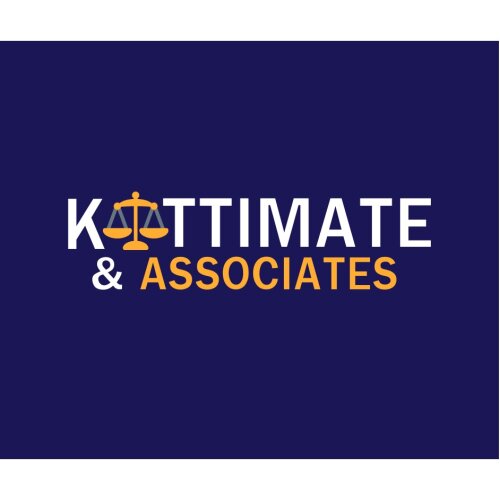ทนายความ เทคโนโลยีทางการเงิน ที่ดีที่สุดใน ประเทศไทย
แบ่งปันความต้องการของคุณกับเรา รับการติดต่อจากสำนักงานกฎหมาย
ฟรี ใช้เวลา 2 นาที
หรือปรับแต่งการค้นหาของคุณโดยเลือกเมือง:
รายชื่อทนายความที่ดีที่สุดใน ประเทศไทย
คู่มือกฎหมายเขียนโดย Mahanakorn Partners Group Co., Ltd:
- Thailand Strengthens Anti-Money Laundering Laws with New Amendments
- Recent Updates to Thailand’s Long-Term Resident (LTR) Visa and SMART Visa Programs
- Managing Risks in Public-Private Partnership Projects
1. เกี่ยวกับกฎหมายเทคโนโลยีทางการเงินในประเทศไทย
กฎหมายเทคโนโลยีทางการเงินในประเทศไทยครอบคลุมการกำกับดูแลบริการชำระเงิน การแลกเปลี่ยนและการให้บริการสินทรัพย์ดิจิทัล รวมถึงมาตรการคุ้มครองข้อมูลส่วนบุคคลและการป้องกันฟอกเงิน
แนวโน้มล่าสุดเน้นให้บริการ FinTech เติบโตอย่างมีกรอบกฎหมาย โดยมีหน่วยงานรัฐหลักเป็นผู้กำกับดูแล เช่น ธนาคารแห่งประเทศไทย (BOT) และสำนักงานคณะกรรมการกำกับหลักทรัพย์และตลาดหลักทรัพย์ (SEC)
ข้อมูลโดยรวม: กรอบกฎหมาย FinTech ในไทยมุ่งคุมความเสี่ยงทางการเงิน คุ้มครองผู้บริโภค และส่งเสริมการใช้นวัตกรรมทางการเงินภายใต้กรอบที่ชัดเจน
2. ทำไมคุณอาจต้องการทนายความ
กรณีตั้งบริษัท FinTech ใหม่ในไทย คุณต้องประเมินขอบเขตบริการ ตรวจสอบใบอนุญาตที่จำเป็น และเตรียมเอกสารขออนุญาตจาก BOT หรือ SEC เพื่อดำเนินธุรกิจอย่างถูกต้อง
กรณีออกโทเคนดิจิทัลหรือนายมูลค่าดิจิทัล การพิจารณาโครงสร้าง ICO หรือการระดมทุนโดยใช้สินทรัพย์ดิจิทัลต้องเป็นไปตามกฎหมายที่เกี่ยวข้อง เช่น การขออนุญาตและการเปิดเผยข้อมูลอย่างชัดเจน
กรณีปรับปรุงระบบชำระเงินของคุณ เมื่อคุณใช้แพลตฟอร์มชำระเงิน จะมีข้อกำหนดด้านความปลอดภัยข้อมูล ความคุ้มครองผู้บริโภค และความสอดคล้องกับมาตรฐาน AML/KYC
กรณีใช้งานข้อมูลส่วนบุคคลของลูกค้า FinTech ต้องปฏิบัติตามกฎหมายคุ้มครองข้อมูลส่วนบุคคล โดยเฉพาะการโอนข้อมูลระหว่างประเทศและการแจ้งเหตุละเมิดข้อมูล
กรณีร่วมมือกับสถาบันการเงิน สัญญาการร่วมมืออาจมีข้อกำหนดด้านการคุ้มครองข้อมูล ความรับผิด และการกำกับดูแลที่ซับซ้อน จำเป็นต้องทนายช่วยตรวจสอบและร่างสัญญา
กรณีข้อพิพาททางการเงินหรือสัญญา ความเสี่ยงด้านสัญญา การชำระหนี้ และการรับผิดจะถูกตีความตามกฎหมายไทย การมีทนายช่วยวางแผนการเรียกค่าเสียหายจึงเป็นประโยชน์
3. ภาพรวมกฎหมายท้องถิ่น
พระราชบัญญัติการให้บริการชำระเงิน พ.ศ. 2561 กำกับผู้ให้บริการชำระเงิน โดยมี BOT รับผิดชอบและกำหนดใบอนุญาตให้บริการชำระเงิน
บังคับใช้และปรับปรุงเพิ่มเติมเพื่อรองรับบริการชำระเงินแบบดิจิทัล เช่น e-wallet และระบบ QR payment
อ้างอิง: Bank of Thailand เน้นการกำกับดูแลผู้ให้บริการชำระเงินเพื่อคุ้มครองผู้บริโภคและเสถียรภาพระบบการชำระเงิน
พระราชบัญญัติคุ้มครองข้อมูลส่วนบุคคล พ.ศ. 2562 กำหนดหลักการคุ้มครองข้อมูลส่วนบุคคล ทั้งการเก็บ ใช้ และโอนข้อมูลของผู้ใช้บริการ
การบังคับใช้ที่เข้มงวดขึ้นเมื่อข้อมูลส่วนบุคคลถูกประมวลผลด้วยระบบ FinTech และมีการระบุตัวตนของผู้ใช้
อ้างอิง: หน่วยงานกำกับดูแลข้อมูลส่วนบุคคลในไทย เน้นการคุ้มครองข้อมูลส่วนบุคคลในบริบทดิจิทัล
พระราชบัญญัติป้องกันและปราบปรามการฟอกเงิน พ.ศ. 2542 และบทบัญญัติ AML/CFT ที่เกี่ยวข้อง
FinTech ต้องมีกรอบ KYC/AML ที่ชัดเจน เช่น การระบุลูกค้า ตรวจสอบแหล่งที่มาเงิน และแจ้งธุรกรรมที่น่าสงสัยแก่หน่วยงานที่เกี่ยวข้อง
4. คำถามที่พบบ่อย
อะไรคือข้อกำหนดหลักของพระราชบัญญัติการให้บริการชำระเงิน พ.ศ. 2561 และบทบาทของทนายความในการขออนุญาต?
ข้อกำหนดหลักมุ่งให้ผู้ประกอบการขอใบอนุญาตจาก BOT หากมีการให้บริการชำระเงินโดยตรง ควบคุมความปลอดภัยข้อมูลและการคุ้มครองผู้บริโภค ทนายความช่วยเตรียมเอกสารยื่นขออนุญาต ตรวจสอบข้อกำหนด และวางกรอบสัญญากับคู่ค้า
อย่างไรถึงจะทราบว่าธุรกิจ FinTech ของฉันอยู่ในขอบเขต PDPA?
หากคุณประมวลผลข้อมูลส่วนบุคคลของผู้ใช้ ไม่ว่าจะเป็นลูกค้าบุคคล หรือบุคคลที่สาม และมีการโอนระหว่างประเทศ คุณควรประเมินความสอดคล้อง PDPA ทนายจะช่วยทำ DPIA และร่างนโยบายการคุ้มครองข้อมูล
เมื่อไหร่ที่ต้องยื่นขอใบอนุญาตภายใต้ PSA?
เมื่อธุรกิจของคุณมีการให้บริการชำระเงิน เช่น e-wallet, QR payments หรือโอนเงินผ่านระบบดิจิทัล คุณต้องยื่นขอใบอนุญาตที่ BOT ก่อนเริ่มดำเนินการ
ที่ไหนที่ฉันสามารถหาข้อมูลรายละเอียดตัวบทและแนวทางปฏิบัติสำหรับ KYC/AML?
แหล่งข้อมูลหลักคือเว็บไซต์หน่วยงานรัฐที่กำกับดูแล AML เช่น AML Office และ SEC หากต้องการแนวทางการปฏิบัติจริง ควรปรึกษาทนายเพื่อให้สอดคล้องกับกรณีของคุณ
ทำไมสัญญาความร่วมมือกับธนาคารถึงต้องระบุข้อมูลส่วนบุคคล?
สัญญาจะระบุข้อกำหนดการคุ้มครองข้อมูล ความรับผิด และการรักษาความปลอดภัยข้อมูล เพื่อป้องกันการละเมิดและปฏิบัติตาม PDPA
สามารถฟ้องเรียกร้องค่าสินไหมกรณีละเมิดข้อมูลส่วนบุคคลได้หรือไม่?
ได้ถ้าการละเมิดเกิดจากการประมวลผลข้อมูลที่ไม่ถูกต้องหรือไม่ปลอดภัย ทนายจะช่วยประเมินสิทธิเรียกร้องและแนวทางเรียกร้องค่าชดเชย
ค่าธรรมเนียมทนายความในการดำเนินคดี FinTech โดยทั่วไปเท่าไหร่?
ค่าธรรมเนียมขึ้นกับความซับซ้อนและระยะเวลา โดยทั่วไปเริ่มตั้งแต่หลักหมื่นไปจนถึงหลายแสนบาทสำหรับงานระดับกลางถึงสูง
ระยะเวลาในการขออนุญาต PSA หรือขอใบอนุญาตด้าน FinTech ใช้เวลานานแค่ไหน?
ระยะเวลาขึ้นกับประเภทบริการและความครบถ้วนของเอกสาร โดยทั่วไปอาจใช้หลายสัปดาห์ถึงหลายเดือน
คุณสมบัติของทนายความที่เหมาะสำหรับ FinTech คืออะไร?
ควรมีประสบการณ์ด้านการกำกับดูแลการเงิน เทคโนโลยีสารสนเทศ และ PDPA/AML พร้อมทักษะร่างสัญญาและการเจรจา
ความแตกต่างระหว่างการให้บริการชำระเงินที่มีใบอนุญาตกับผู้ให้บริการที่ไม่มีใบอนุญาตคืออะไร?
ผู้ที่มีใบอนุญาตถูกควบคุมโดย BOT และมีข้อกำหนดด้านความปลอดภัย ในขณะที่ผู้ให้บริการที่ไม่มีใบอนุญาตเสี่ยงต่อการถูกดำเนินคดีและปิดกิจการ
ควรมีมาตรการความปลอดภัยข้อมูลอะไรบ้างเมื่อออกระบบชำระเงิน?
ควรมีการเข้ารหัสข้อมูล การควบคุมการเข้าถึง และการติดตามการใช้งาน ปฏิบัติตาม PDPA และ AML อย่างเคร่งครัด
ICO หรือ ICO-like fundraising ในประเทศไทยมีกฎหมายควบคุมอะไรบ้าง?
การระดมทุนด้วยสินทรัพย์ดิจิทัลอยู่ภายใต้กรอบกำกับดูแลของ SEC และกฎหมายที่เกี่ยวข้องกับการคุ้มครองนักลงทุน จำเป็นต้องปรึกษาทนายเพื่อดำเนินการอย่างถูกต้อง
ฉันควรเริ่มอย่างไรหากต้องปรึกษากฎหมาย FinTech ในประเทศไทย?
เริ่มจากการประเมินขอบเขตธุรกิจและความเสี่ยง จากนั้นปรึกษาทนายเพื่อจัดทำแผนความสอดคล้องกฎหมายตั้งแต่ขั้นตอนออกแบบบริการจนถึงนำไปปฏิบัติ
5. ทรัพยากรเพิ่มเติม
- ธนาคารแห่งประเทศไทย (BOT) เว็บไซต์ราชการสำหรับข้อมูลด้านการให้บริการชำระเงินและการกำกับดูแล
- สำนักงานคณะกรรมการกำกับหลักทรัพย์ และตลาดหลักทรัพย์ (SEC) ข้อบังคับเกี่ยวกับสินทรัพย์ดิจิทัลและ ICO
- สำนักงาน ปปง (Anti-Money Laundering Office) แนะนำมาตรการ AML/CFT สำหรับธุรกรรมทางการเงิน
ลิงก์อ้างอิงทางการ
อ้างอิงจาก BOT: แนวทางการกำกับดูแลบริการชำระเงินในไทย
อ้างอิงจาก SEC: กรอบข้อบังคับสินทรัพย์ดิจิทัลและ ICO ในประเทศไทย
หมายเหตุ: ให้ตรวจสอบหน้าเว็บล่าสุดของหน่วยงานเพื่อข้อมูลที่เป็นปัจจุบัน
6. ขั้นตอนถัดไป
- ประเมินขอบเขตบริการ FinTech ของคุณ เพื่อกำหนดใบอนุญาตที่ต้องขอ
- รวบรวมเอกสารพื้นฐาน เช่น แผนธุรกิจ กรอบความคุ้มครองข้อมูล และนโยบาย KYC/AML
- ปรึกษาทนายเพื่อประเมินความสอดคล้องกับ PSA, PDPA และ AML
- เตรียมร่างสัญญาความร่วมมือกับผู้ให้บริการและธนาคารที่เกี่ยวข้อง
- ยื่นขอใบอนุญาตหรือจดทะเบียนที่ BOT หรือ SEC ตามกรอบบริการ
- วางระบบความปลอดภัยข้อมูลและการติดตามเหตุการณ์ละเมิดข้อมูล
- ติดตามการเปลี่ยนแปลงกฎหมายและปรับปรุงนโยบายตามความจำเป็น
Lawzana ช่วยคุณค้นหาทนายความและสำนักงานกฎหมายที่ดีที่สุด ใน ประเทศไทย ผ่านรายชื่อผู้เชี่ยวชาญด้านกฎหมายที่มีคุณสมบัติเหมาะสมที่คัดสรรและตรวจสอบล่วงหน้า แพลตฟอร์มของเรานำเสนอการจัดอันดับและโปรไฟล์โดยละเอียดของทนายความและสำนักงานกฎหมาย ช่วยให้คุณเปรียบเทียบตามสาขากฎหมาย รวมถึง เทคโนโลยีทางการเงิน ประสบการณ์ และความคิดเห็นของลูกค้า
แต่ละโปรไฟล์ประกอบด้วยคำอธิบายเกี่ยวกับสาขากฎหมายของสำนักงาน รีวิวจากลูกค้า สมาชิกในทีมและหุ้นส่วน ปีที่ก่อตั้ง ภาษาที่พูด ที่ตั้งสำนักงาน ข้อมูลการติดต่อ การมีตัวตนบนโซเชียลมีเดีย และบทความหรือแหล่งข้อมูลที่เผยแพร่ สำนักงานส่วนใหญ่บนแพลตฟอร์มของเราพูดภาษาอังกฤษและมีประสบการณ์ทั้งในเรื่องกฎหมายท้องถิ่นและระหว่างประเทศ
ขอใบเสนอราคาจากสำนักงานกฎหมายชั้นนำ ใน ประเทศไทย — รวดเร็ว ปลอดภัย และไม่ยุ่งยาก
ข้อจำกัดความรับผิดชอบ:
ข้อมูลที่ให้ไว้ในหน้านี้มีวัตถุประสงค์เพื่อเป็นข้อมูลทั่วไปเท่านั้นและไม่ถือเป็นคำแนะนำทางกฎหมาย แม้ว่าเราจะพยายามตรวจสอบความถูกต้องและความเกี่ยวข้องของเนื้อหา แต่ข้อมูลทางกฎหมายอาจเปลี่ยนแปลงได้ตามกาลเวลา และการตีความกฎหมายอาจแตกต่างกันไป คุณควรปรึกษาผู้เชี่ยวชาญด้านกฎหมายที่มีคุณสมบัติเหมาะสมเพื่อขอคำแนะนำเฉพาะสำหรับสถานการณ์ของคุณเสมอ
เราปฏิเสธความรับผิดทั้งหมดสำหรับการกระทำที่ทำหรือไม่ทำตามเนื้อหาในหน้านี้ หากคุณเชื่อว่าข้อมูลใดไม่ถูกต้องหรือล้าสมัย โปรด contact us และเราจะตรวจสอบและแก้ไขตามความเหมาะสม
เรียกดูสำนักงานกฎหมาย เทคโนโลยีทางการเงิน ตามเมืองใน ประเทศไทย
ปรับแต่งการค้นหาของคุณโดยเลือกเมือง

















